Phuc Khang Corporation pioneers shift to ESG ideals
In this context, environmental, social, and governance (ESG) practices have transitioned from optional to essential for companies to thrive and align with global environmental goals.
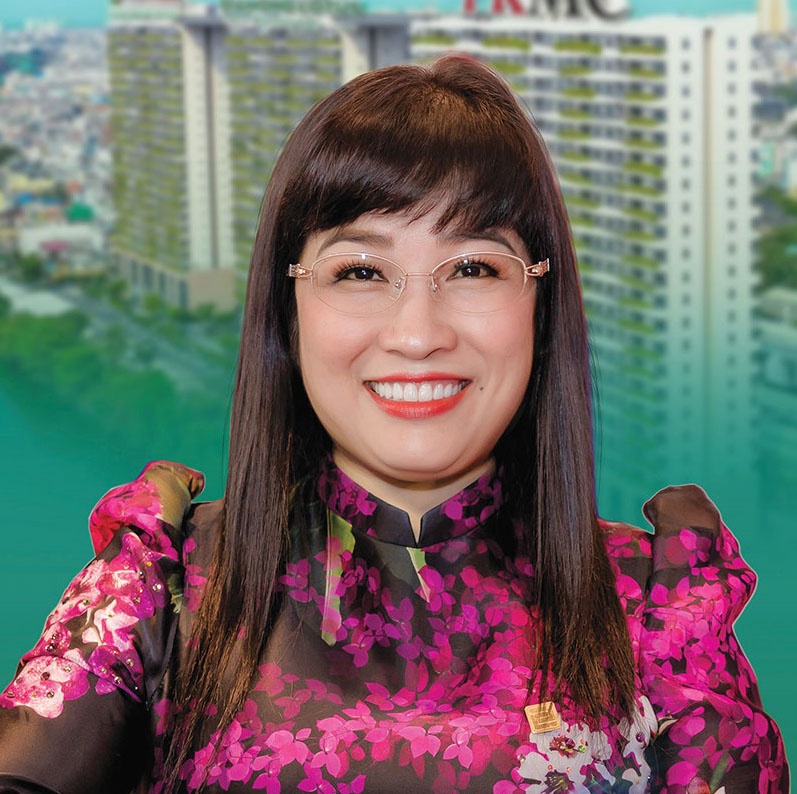 |
| Luu Thi Thanh Mau, CEO, Phuc Khang Corporation |
Since its inception, Phuc Khang Corporation (PKC), a green building developer in Vietnam, has been committed to leading and promoting the creation of a better lifestyle for community health and sustainable ecological environment in line with global green standards.
PKC has consistently delivered high-quality real estate products, enhanced living standards while ensuring harmony with the environment. Over its 14-year journey, PKC’s corporate social responsibility (CSR) initiatives have evolved in quantity and quality. In 2021, it launched community campaigns which included free vaccination programmes, support for the Young Entrepreneurs Association’s ATM programme, donations of protective gear and medical equipment, and thousands of gift packs, test kits, beds, and meals for vulnerable communities.
Last year, focusing on a green and sustainable environment, PKC intensified its environmental initiatives through activities like greenification, clean-up, ecological protection, sponsoring research on climate change impacts, and promoting green education through green study tours with universities and research institutes.
Building on years of such practices, PKC has seamlessly transitioned to integrating ESG strategies into its operations. The company’s CSR activities already align with ESG metrics, laying a solid foundation for future ESG practices. This transition signifies PKC’s evolution in keeping with global trends.
In its ESG journey, PKC aligns closely with the 17 Sustainable Development Goals of the United Nations. The company’s specific ESG strategies target distinct goals, contributing to broader community objectives. In the first half of 2023, PKC implemented concrete activities under its ESG framework. Environmentally, the company is applying circular economy principles in its operations, pursuing international green building certifications, and organising more green study programmes.
Socially, PKC ensures compliance with wage, bonus, and mandatory insurance regimes, conducts comprehensive health check-ups for employees, maintains gender equality assessments using the GEARS tool, and continues internal training programmes. In governance, it focuses on digital transformation projects like E-Office, specialised training for management, and refining policies and procedures for stakeholder engagement.
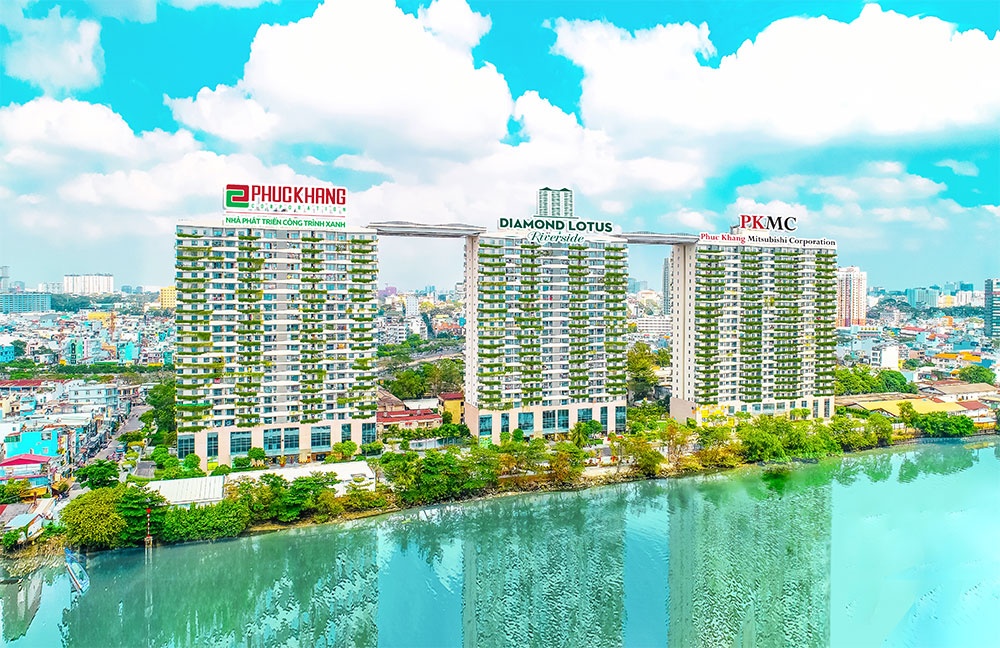 |
Vietnam’s commitment to net-zero emissions by 2050 is accelerating the shift towards sustainable practices in various sectors. Companies like PKC are at the forefront, demonstrating how integrating CSR into a broader ESG framework can lead to sustainable and meaningful business development.
This transition is not just a corporate effort but a journey towards a sustainable future for the entire community. As more businesses in Vietnam adopt this approach, it sets a promising trend for the nation’s path to achieving its climate goals and sustainable development.
ESG practices do not fundamentally alter PKC’s essence, strategy, or operations; rather, they provide a clearer direction for sustainable and appropriate growth. It serves both as a yardstick and a catalyst for corporate advancement. Most businesses, including PKC, are not starting from scratch with ESG but are at various stages of its implementation.
This journey is a long one, requiring systematic and serious investment by enterprises. It stands as a sound strategy that helps businesses build a set of common standards, promoting sustainable growth and contributing to society and the community.
A successful ESG strategy will lay a vital foundation for sustainable development, creating significant value not just for businesses and entrepreneurs, but also for the community and stakeholders. With that, the company has set clear goals: to create green buildings, a green community, and a green future.
| PKC’s journey from CSR to ESG represents a strategic elevation, with a focus on creating sustainable impacts across all its operations. The integration of ESG into the company’s core strategies reflects its commitment to not only financial success but also to making a positive impact on the environment and society. This approach is essential for businesses looking to thrive in today’s increasingly socially conscious market. |
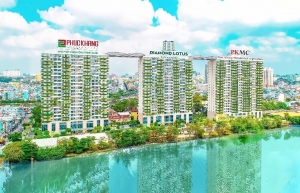 | Phuc Khang applies green building standards to reduce carbon emissions Phuc Khang Corporation (PKC) paid early attention to green construction. The projects invested and developed by the business aim to optimise energy consumption, reduce carbon emissions, and benefit the environment. |
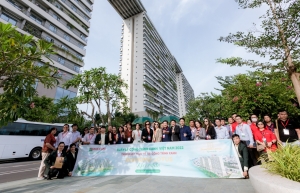 | Phuc Khang Corporation focuses on green buildings and sustainable development Developing green buildings aiming for smart living spaces with low emissions is not only limited to policies and efforts from agencies and authorities, but has been replicated as a trend among businesses, entrepreneurs and the wider community. |
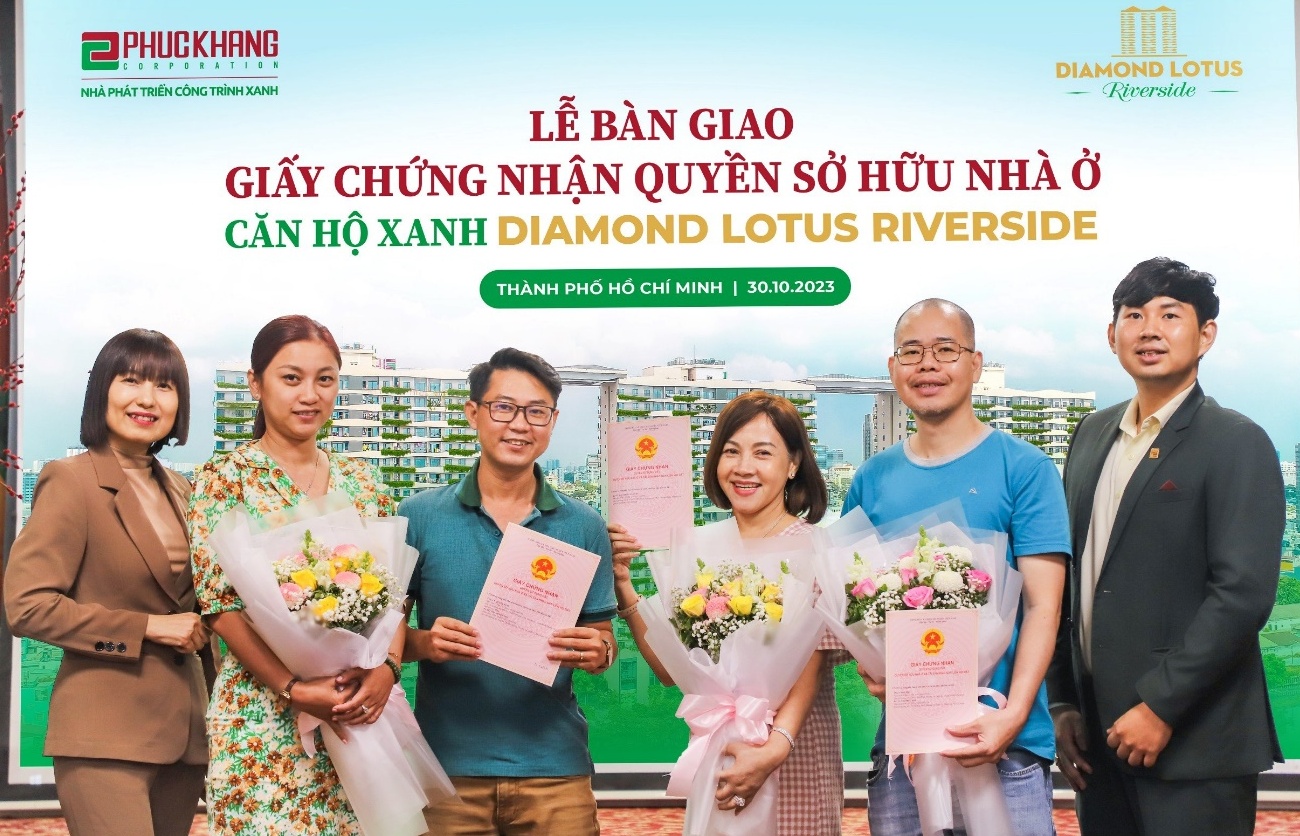 | Phuc Khang hands Diamond Lotus Riverside over to residents Diamond Lotus Riverside, developed by Phuc Khang Mitsubishi Corporation Holdings – a joint venture between Phuc Khang Corporation and Mitsubishi Corporation – saw certificates of land use and housing rights handed over to residents on October 30. |
What the stars mean:
★ Poor ★ ★ Promising ★★★ Good ★★★★ Very good ★★★★★ Exceptional
Related Contents
Latest News
More News
- Construction firms poised for growth on public investment and capital market support (February 11, 2026 | 11:38)
- Mitsubishi acquires Thuan An 1 residential development from PDR (February 09, 2026 | 08:00)
- Frasers Property and GELEX Infrastructure propose new joint venture (February 07, 2026 | 15:00)
- Sun Group led consortium selected as investor for new urban area (February 06, 2026 | 15:20)
- Vietnam breaks into Top 10 countries and regions for LEED outside the US (February 05, 2026 | 17:56)
- Fairmont opens first Vietnam property in Hanoi (February 04, 2026 | 16:09)
- Real estate investment trusts pivotal for long-term success (February 02, 2026 | 11:09)
- Dong Nai experiences shifting expectations and new industrial cycle (January 28, 2026 | 09:00)
- An Phat 5 Industrial Park targets ESG-driven investors in Hai Phong (January 26, 2026 | 08:30)
- Decree opens incentives for green urban development (January 24, 2026 | 11:18)

 Tag:
Tag:

















 Mobile Version
Mobile Version